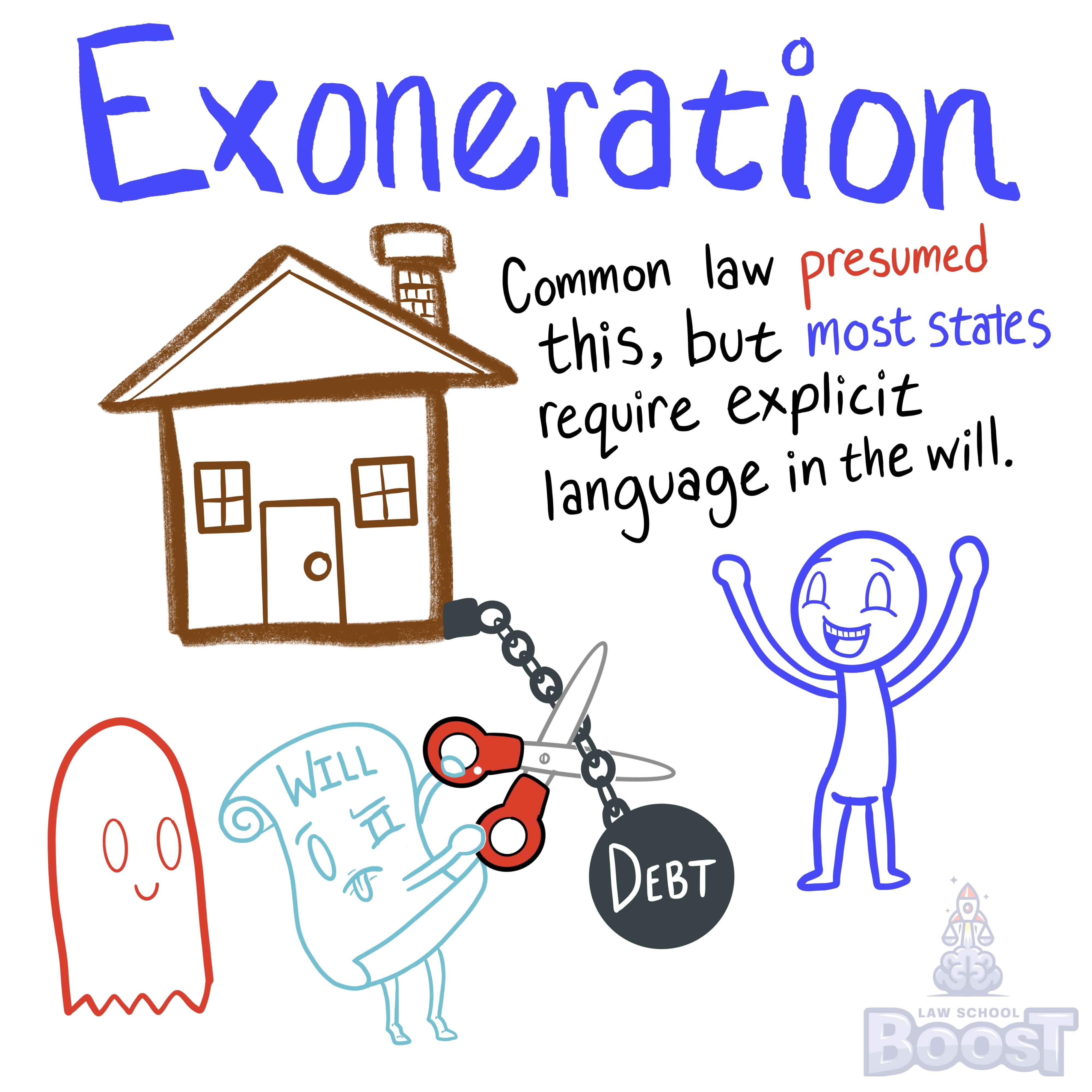😭
Wills • Probate and Estate Administration
WILLS#051
Legal Definition
There is no automatic exoneration in most states, which means that a devisee takes a specific gift subject to any encumbrances unless there is contrary intent in the will.
Plain English Explanation
Under common law, if a dead person gifted their house to someone, but their house had a lien attached to it, the person receiving the house via the will was entitled to have the lien exonerated. In other words, if Bob had a house with a lien and left the house to Sam upon Bob's death, Sam could demand that Bob's estate pay for the debt (to remove the lien) out of any of its leftover assets that were part of the residue (the stuff that wasn't specifically gifted to anyone in the will).
However, most states do not follow the common law and, instead, requires that the will specifically state that the dead person intended for the debts to be paid off using estate assets. Without such language, the person receiving the gift also receives the attached debt.
However, most states do not follow the common law and, instead, requires that the will specifically state that the dead person intended for the debts to be paid off using estate assets. Without such language, the person receiving the gift also receives the attached debt.
Hypothetical
Hypo 1: Bob leaves his son, Timmy, a lake house in his will. However, the house has a mortgage. The will doesn't mention the mortgage at all. Result: Timmy inherits the lake house but also inherits the mortgage. Since Bob's will didn't say anything about paying off the mortgage, Timmy has to pay it.
Hypo 2: Bob bequeaths his apartment to his friend Sam. The apartment has unpaid property taxes. Bob's will specifically states that any debts on properties should be paid by the estate. Result: The estate pays the property taxes before Sam gets the apartment. The specific language in the will ensures Sam doesn't have to deal with the unpaid taxes.
Hypo 3: Bob gifts his classic car collection to his son, Sam. One of the cars has a loan against it. Bob's will is silent about any debts. Result: Sam inherits the car collection but also the loan on the one car. Without specific instructions in the will, Sam is responsible for the loan.
Hypo 2: Bob bequeaths his apartment to his friend Sam. The apartment has unpaid property taxes. Bob's will specifically states that any debts on properties should be paid by the estate. Result: The estate pays the property taxes before Sam gets the apartment. The specific language in the will ensures Sam doesn't have to deal with the unpaid taxes.
Hypo 3: Bob gifts his classic car collection to his son, Sam. One of the cars has a loan against it. Bob's will is silent about any debts. Result: Sam inherits the car collection but also the loan on the one car. Without specific instructions in the will, Sam is responsible for the loan.
Visual Aids



